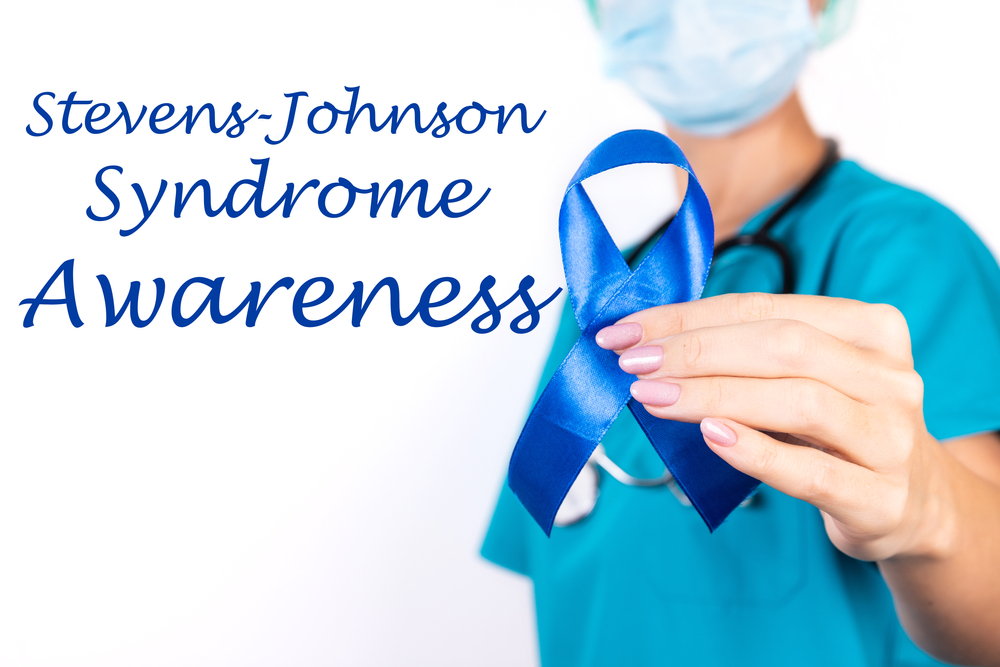One of the leading causes of death in the United States is allergic drug reactions. For those diagnosed with Stevens-Johnson syndrome (SJS) or toxic epidermal necrolysis (TEN), this may not come as a surprise. These conditions can be life-threatening, require immediate medical attention, can lead to hospitalization for treatment, and may cause loss of life. Many times, SJS is the result of an adverse reaction to a medication.
What is Stevens-Johnson Syndrome?
Stevens-Johnson syndrome is a severe but rare condition affecting the skin and mucous membranes. Typically diagnosed as an allergic reaction to a medication, SJS begins with flu-like symptoms, followed by blisters and a painful rash that spreads. When 30 percent or more of the skin’s surface is affected, a patient is diagnosed with toxic epidermal necrolysis.
August marks Stevens-Johnson Syndrome Awareness Month. Throughout the month, non-profit organizations like the Stevens-Johnson Syndrome Foundation are raising awareness of the risks of acquiring SJS and TEN. Their motto is to “educate before you medicate.” Before taking medication, investigate the potential risks.
For some patients, simply taking a type of medication could result in SJS. The medicine could be something a medical professional prescribes or purchased over the counter, like pain relievers. In 2013, the FDA issued a warning that acetaminophen has been linked to cases of SJS. Acetaminophen is used daily by millions of Americans to treat acute pain, fever, and other minor ailments. It is an active ingredient in many prescription and over-the-counter products. Many may take acetaminophen without considering the potential risk to themselves, unaware of the hidden dangers of SJS. Other drugs used to treat conditions like ulcerative colitis, gout, bipolar disease, and diabetes have been linked to SJS, including allopurinol (Zyloprim and Aloprim), Lamictal (lamotrigine) and Dilantin (phenytoin).
Why An SJS Diagnosis May Require Legal Assistance
There are certain scenarios in which a Stevens-Johnson syndrome diagnosis could have been prevented. If this is the case, legal options are available to help compensate for medical expenses, pain and suffering, and more.
If manufacturers don’t adequately warn consumers of the risks associated with taking their medicine, they could be liable for an SJS diagnosis. Also, medical professionals who fail to warn patients of the risks of certain drugs, prescribe them incorrectly, or misdiagnose and delay SJS treatment could be held responsible. A Stevens-Johnson syndrome attorney can help to determine if negligence by a drug manufacturer, physician, pharmacist, or other health care provider was involved.
Some cases of SJS could be due to medical malpractice. For example, a medical professional fails to warn a patient of the risks associated with taking a medication. Physicians should advise those they prescribe medication of all risks associated with it, including the risk of complications and medication interactions. This can include prescribed medicine and medicine purchased over the counter. Pharmacists also have obligations to communicate the risks and consequences of taking medication to patients. If pharmacists and physicians fail to provide adequate information about medication interactions and potential risks of complications, they may be named in an SJS lawsuit.
SJS can also occur when an incorrect dose of a medication is prescribed. Some medicines require titrating, which is the process of starting a drug at a low dose and increasing the amount over time. Titrating can also occur when decreasing medication and weaning patients off of it. This process must be done safely, calculated, and supervised by medical professionals. Without this practice, patients could have a greater risk of experiencing SJS with certain drugs.
Physicians could also misdiagnose SJS when patients present with symptoms. When treatment is delayed for any health issue, it can put patients' lives at risk. In the case of SJS and TEN, delaying diagnosis and treatment could mean a lifetime of complications or even loss of life.
Recovering from Stevens-Johnson syndrome can be complex and lengthy without proper medical and financial support. An attorney with expertise in SJS can assist you in your recovery by determining if your Stevens-Johnson syndrome was due to someone else’s negligence. They can conduct a thorough investigation and advocate on your behalf for compensation while you and your family focus on recovery.
In August and throughout the rest of the year, think about Stevens-Johnson syndrome and how a medicine could impact your health. Educate before you medicate.













